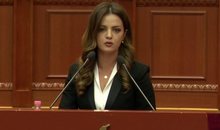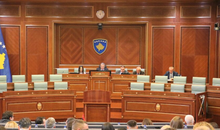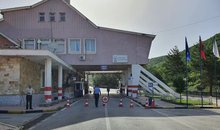
 Flash News
Flash News
AMP checks at Kapshtica customs, drug found hidden in a vehicle
Insult and denigration, the Journalists Association of Albania condemns Ristan's attack on the "Piranha" journalist
"Land Rover" abandoned for two years in the Port of Durres, 3 firearms and cartridges found, 24-year-old wanted
Mavraj's message to the Rossoneri: Kosovo is ours forever. Now play football
Posta e mëngjesit/ Me 2 rreshta: Çfarë pati rëndësi dje në Shqipëri
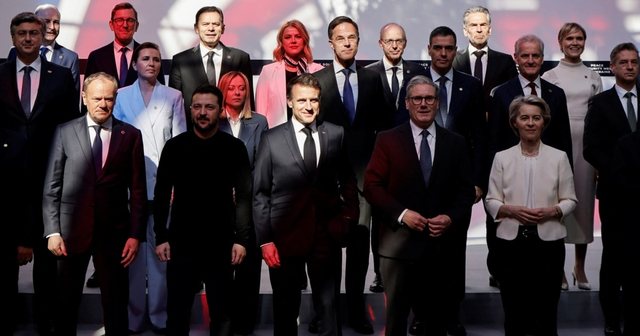
Another week filled with military planning and diplomacy will once again highlight the divisions between the United States and its European allies over Ukraine policy, with two key meetings back-to-back at NATO headquarters in Brussels.
The US will be absent from the first meeting and is not expected to have any significant role in the second either, as European countries aim to move forward with their own plans.
The first meeting, on April 10, will bring together Defense Ministers from what is known as the "coalition of countries ready to act," which also includes countries outside Europe such as Canada and Australia.
The 30-nation group was formed in early March after a bitter standoff between US President Donald Trump and Ukrainian President Volodymyr Zelenskyy at the White House. One of the coalition's main objectives is to form a military force that would be deployed in Ukraine after a ceasefire or peace agreement.
But a major problem with creating this force is the lack of support from the US. Many countries, including Britain, have stated that this would only be possible with a "US guarantee" - meaning air support, logistics and intelligence.
So far, there are no clear signals from the US that it will take on this role.
Former NATO commander in Europe, Philip Breedlove, told Radio Free Europe that he did not believe there was the political will in Washington to do so - but stressed that Europe should move forward with its plans anyway.
"If Mr. Putin sees beyond the fence a large coalition of the willing, including Britain, France and Germany, he will think twice," he said.
It is not yet clear whether Germany will participate in any military presence in Ukraine, as the country is in a period of political transition following February elections and is in the process of forming a new government.
Britain and France are leading the coalition, pledging military support for the mission, and will host the April 10 meeting.
"I think Europe can do this on its own," Breedlove said.
"The Russian army is exhausted. It urgently needs a period of peace to reorganize and re-equip. It would be the greatest gift we could give Russia if we allowed it to rebuild," he added.
His statements align with those of former US Army commander in Europe Ben Hodges, who last month told REL that European forces had "well-equipped men and women" who could handle the task without US involvement.
However, US involvement still remains a key point on the agenda.
"The Europeans need to convince Trump to support this idea," said Jamie Shea, a former senior NATO official.
"It is clear that this will be a small force and not on the front lines... But the big question is: will this force ever be deployed if there is no peace and the war continues," he added.
A day after the Coalition of the Willing talks, transatlantic divisions will come to the fore again at the meeting of the Ukraine Defense Contact Group, created in 2022 by former US Secretary of Defense Lloyd Austin.
Austin was leading the meetings, which were aimed at coordinating military aid to Ukraine after Russia's full-scale aggression. But his successor, Pete Hegseth, is likely to skip the meeting. A Pentagon statement on April 4 said he would travel to Panama.
"The leaders of our European allies must take primary responsibility for the defense of the continent," Hegseth said in February.
"Values are important. But you can't shoot with values. You can't shoot with flags or strong speeches. There is no substitute for real military power," he added, calling on Europe to increase defense spending.
Hegseth made these comments a day after attending, but not chairing, the last meeting of the Contact Group.
"Hegseth's absence means the US has no new aid package to announce," said former NATO official Shea.
"The US is likely still tying aid to the outcome of the mineral agreement negotiations with Ukraine."
"I consider Secretary Hegseth a friend. But I think it's a big mistake that he's not participating," Breedlove said.
"America must continue to show leadership in Europe," Breedlove added./ REL
Latest news

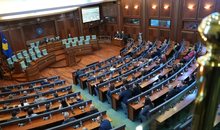
Kosovo Assembly fails to be constituted even after 28 attempts
2025-06-07 11:58:58
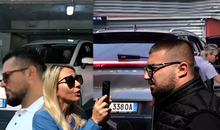
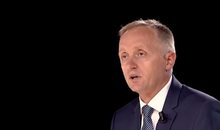
Oh Albania, you have no old age!
2025-06-07 11:05:01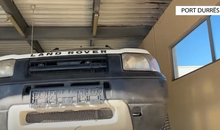
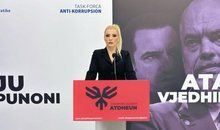
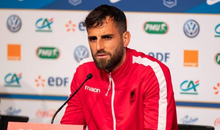
Mavraj's message to the Rossoneri: Kosovo is ours forever. Now play football
2025-06-07 10:10:52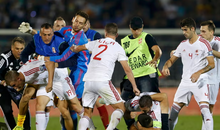
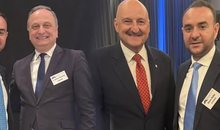
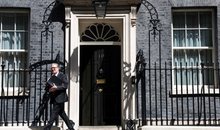
Why are Ukrainians being accused of arson at Keir Starmer's properties?
2025-06-07 09:16:24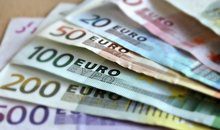
Foreign exchange, how much foreign currencies are sold and bought today
2025-06-07 09:04:55

Horoscope, what do the stars have in store for you today?
2025-06-07 08:31:29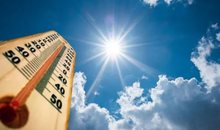
Weather forecast for Saturday, here's what the temperatures will be like
2025-06-07 08:17:35
Posta e mëngjesit/ Me 2 rreshta: Çfarë pati rëndësi dje në Shqipëri
2025-06-07 08:01:23
Heavy metals in the Drin River, causes of cancerous diseases
2025-06-06 22:54:02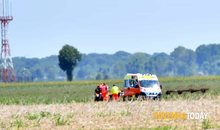
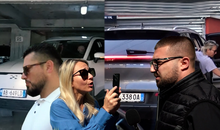
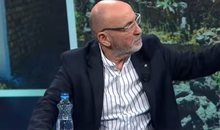
Works in Spaç, Lubonja: Destruction of collective and historical memory
2025-06-06 21:54:32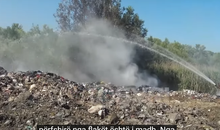
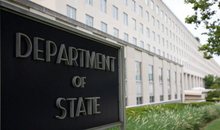
DASH: Balkans, part of American strategy for expelling migrants
2025-06-06 21:12:33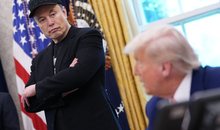

Ilir Shqina, a diplomat, and her business partner Grida Dumas were suddenly born
2025-06-06 20:21:46
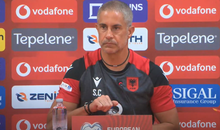
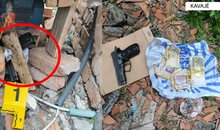
Couple injured in Kavaja, police find firearm hidden in wall
2025-06-06 19:05:19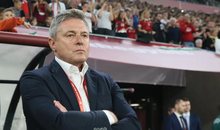
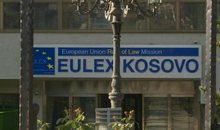
EULEX mandate in Kosovo extended until 2027
2025-06-06 17:58:20
These are the 3 zodiac signs that will be favored in the next decade
2025-06-06 17:50:52
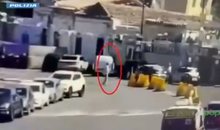
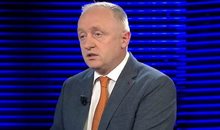
Anthropology
2025-06-06 17:06:00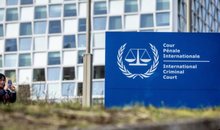
EU supports International Criminal Court after US sanctions
2025-06-06 16:47:51
Gonxhe ignores concerns about Spaçi and defends the continuation of the works
2025-06-06 16:31:42
Providing online services, report: Institutions, delays in update requests
2025-06-06 16:24:10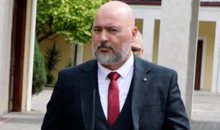
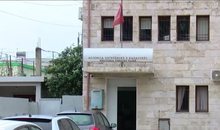
The head of the Vlora Cadastre is changed again
2025-06-06 15:58:49
With a rounded belly, Dafina Zeqiri enjoys the holidays with her partner
2025-06-06 15:36:06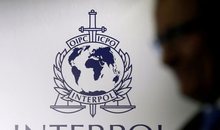

Foods that should not be missing from the Eid al-Adha table
2025-06-06 15:04:48
They exploited girls for prostitution in Vlora, 28-year-old arrested
2025-06-06 14:44:26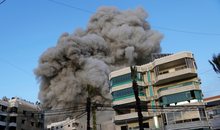
Israel warns of more attacks in Lebanon
2025-06-06 14:26:30
The race for the head of the BKH, the deadline for applications ends today
2025-06-06 14:15:18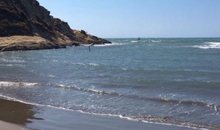
14-year-old girl in Vlora rescued after risking drowning at sea
2025-06-06 14:04:23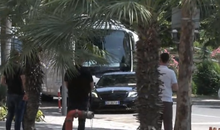
Challenge with Albania, Serbian team arrives in Tirana
2025-06-06 13:49:04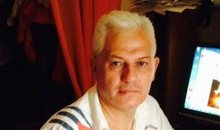
He injured the married couple in Rrogozhina, here is who the perpetrator is
2025-06-06 13:34:20
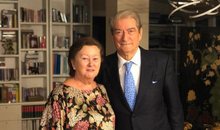
Berisha wishes Eid al-Adha: Blessings to your families and our nation
2025-06-06 13:09:28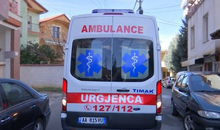
He injured his neighbors with a gun, the perpetrator surrendered to the police
2025-06-06 13:02:47
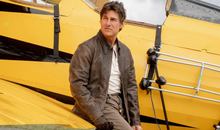
Tom Cruise enters Guinness World Records
2025-06-06 12:38:48
From orange peels to bananas, discover the foods that help you with stress
2025-06-06 12:28:53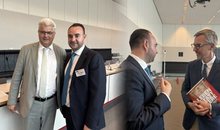

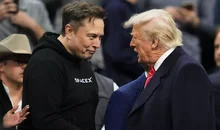
How did the feud between Donald Trump and Elon Musk start?
2025-06-06 11:52:32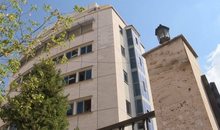
The prosecution sends 5 Kosovar citizens to trial for drug smuggling
2025-06-06 11:33:56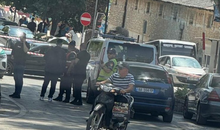
21-year-old injured with knife in Saranda
2025-06-06 11:24:10
Kosovo citizens flock to the Albanian coast, long queue from Morina
2025-06-06 11:11:07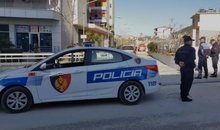
Gunfire in Kavaja, shot at a married couple
2025-06-06 11:05:01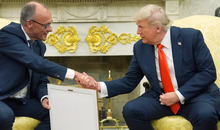
Merz: Bashkëpunim i ngushtë Gjermani-SHBA
2025-06-06 10:45:35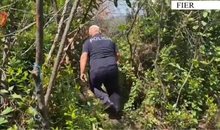
A marijuana plantation is found in Cakran, a 24-year-old man is arrested
2025-06-06 10:25:53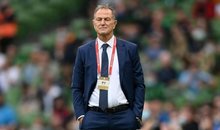
Gianni De Biasi shows the formula for how we can win against Serbia
2025-06-06 10:08:57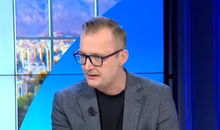
Hoxha: The CEC was one of the main architects of the destruction of free voting
2025-06-06 09:52:16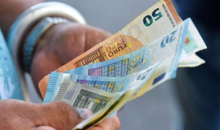
Foreign exchange, June 6, 2025
2025-06-06 09:33:01
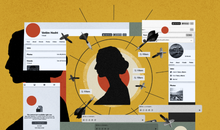
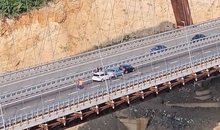
Accident on the new Kukes bridge, three vehicles collide
2025-06-06 08:43:06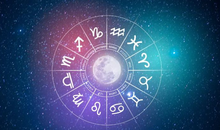
Horoscope, what do the stars have in store for you today?
2025-06-06 08:28:14
Clear weather with few clouds, the forecast for this Friday
2025-06-06 08:13:54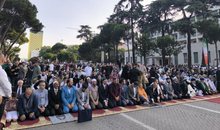

Morning Post/ In 2 lines: What mattered yesterday in Albania
2025-06-06 07:46:29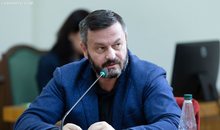
In trial for tender abuse, socialist MP targets ILD
2025-06-05 22:37:09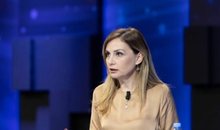
Tabaku: The left in Albania has shown with facts that it is against integration
2025-06-05 22:09:44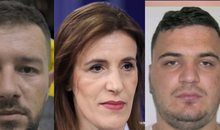
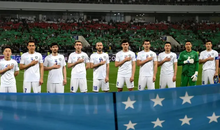
Uzbekistan qualifies for the World Cup for the first time
2025-06-05 21:14:35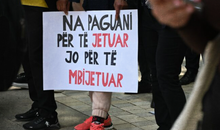
Index: Albania among countries that consistently violate workers' rights
2025-06-05 20:53:35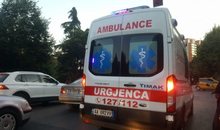
Accident in Burrel, two vehicles collide, 6 injured
2025-06-05 20:31:27
Discover foods that help you relieve stress
2025-06-05 20:16:34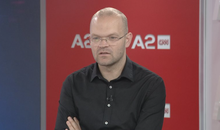
Kalaja: I have a video where votes were taken from the DP and given to the PS
2025-06-05 19:58:04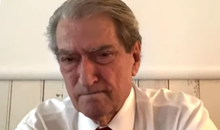
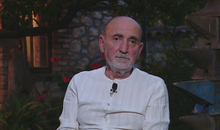
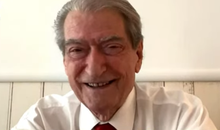
Berisha: The international community does not accept the farce
2025-06-05 18:57:18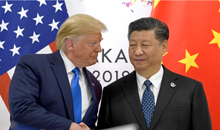
Trump after conversation with Xi: US and China will resume trade talks
2025-06-05 18:35:36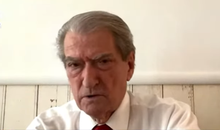
Berisha on May 11: 28 MPs were under the patronage of drug cartels
2025-06-05 18:15:44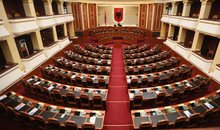
The session in the Assembly closes, the majority approves the draft laws alone
2025-06-05 17:55:21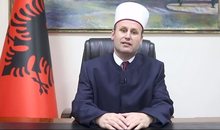
Kurban Bajrami, kreu i Komunitetit Mysliman të Shqipërisë uron besimtarët
2025-06-05 17:29:17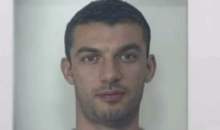
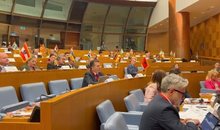
Media at OSCE conference: Organized crime has captured the Albanian state
2025-06-05 16:50:41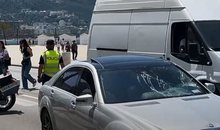
Car hits 75-year-old man at white lines in Vlora
2025-06-05 16:42:48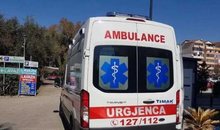
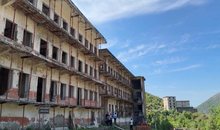
Protest in Spaç, after restoration interventions
2025-06-05 16:27:49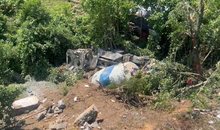
Photo/ Concrete mixer falls into abyss in Ulëz, driver rushed to hospital
2025-06-05 16:15:15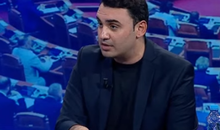
May 11/ Këlliçi: There are attempts to influence the final OSCE-ODIHR report
2025-06-05 16:06:38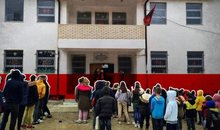
Immigration is emptying schools and universities
2025-06-05 15:53:38
Plague breaks out, Kosovo bans import of sheep and goats from Shkodra and Kukësi
2025-06-05 15:48:23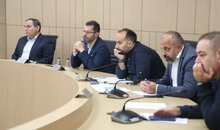
After Tirana, KAS also decides to open the ballot boxes in Dibër
2025-06-05 15:31:03
Tirana is "paralyzed" again, here are the roads that will be blocked tomorrow
2025-06-05 15:20:12